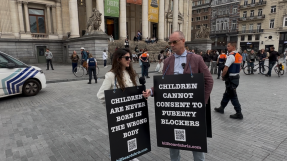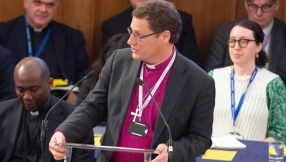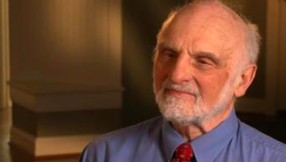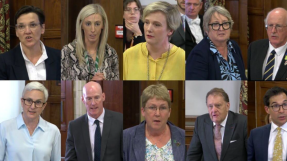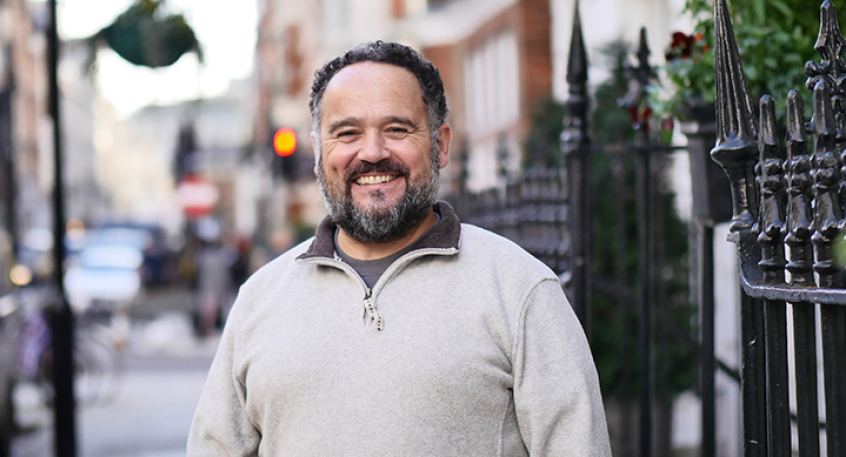
A Christian street preacher fined under Covid regulations is celebrating after his case was dropped by the Crown Prosecution Service.
Mike Overd, 56, was the first Christian preacher to be prosecuted under Covid regulations when he was told to go home by police in Taunton, Somerset, on 2 April 2020, when the country was in the first national lockdown.
When he refused to stop preaching, officers from Avon and Somerset Police packed up his Bibles and removed him from the area. He was then issued with a fixed penalty notice for £60.
Mr Overd decided to contest the fine and his case was due to be heard this week at Weston-super-Mare Magistrates Court, but the CPS has now confirmed that "the prosecution is no longer proceeding".
Responding to the news, Mr Overd said it was wrong to make preachers stay at home when people were in need.
He called the outcome "a great victory for Jesus and for freedom of speech".
"It is a victory that you must be able to go out and preach the gospel, whether there is a terrible virus out there or not. If Christians are called to go, then go we must," he said.
"The fact that it has been quietly dropped today after dragging on for 18 months, shows that my case, and the laws in general, have been all about control and intimidation.
"A year and a half on, with draconian measures still in place and more Christian preachers being arrested than ever before, I knew I was right to take a stand and I am glad to have been vindicated.
"It was always wrong for Christian ministries and churches to be shut down at such a moment of need. Never in our history have so many Christians that sought to support the most vulnerable in our communities been treated so badly by the authorities."
He added, "We must realise as Christians how important our freedoms are and that we give them up and capitulate to state intimidation at our peril."
Mr Overd was represented by the Christian Legal Centre, which said that the fine was "difficult to justify" given the low risk of transmission outdoors.
His lawyers argued in submissions to the CPS that Mr Overd's street ministry fell under "voluntary or charitable services" - an acceptable reason to be outside under lockdown regulations.
The lawyers argued that the police officers' interpretation of regulations on the day were disproportionate and constituted an unreasonable interference with Mr Overd's rights under both English and European law.
Christian theologian Dr Martin Parsons said in a submission on Mr Overd's behalf that street preaching was an important part of evangelical Christianity even in times of pandemics, and that many Christian ministers had died during the great plague of 1665 because of their commitment to helping the dying make "peace with God".
"[There is] a long and continuing practice of street preaching and other forms of open-air evangelism in the UK, which is seen by evangelical Christians as being an essential part of fulfilling Christ's command to preach the Gospel to all people, particularly those who are unlikely to ever enter a church," he said.
"During times of epidemic this has been viewed as being particularly important as helping men and women to find peace with God."
He added: "From the perspective of Christian public theology and Church history the use of coronavirus regulations to prohibit street preaching raises significant issues relating to the development of freedom of religion in British constitutional history."
Andrea Williams, chief executive of the Christian Legal Centre, welcomed the news but expressed concern over the treatment of street preachers.
"The coronavirus regulations required society to willingly surrender basic freedoms. Many courageous Christians, seeing the danger in the laws, simply refused to close down their outreach Christian ministries and stop helping people. For that many have been disproportionately punished," she said.
"Christian street preachers are now being arrested every month in the UK for preaching the gospel. This is a phenomenon in our history unique only to the 21<sup>st century.
"The powers given to the police during this time have set a dangerous precedent, which are continuing to have a ripple effect despite a return to relative normality.
"We said at the time when this story happened that the coronavirus regulations would have far reaching implications for Christian freedoms in the UK, and this has proven to be so."










